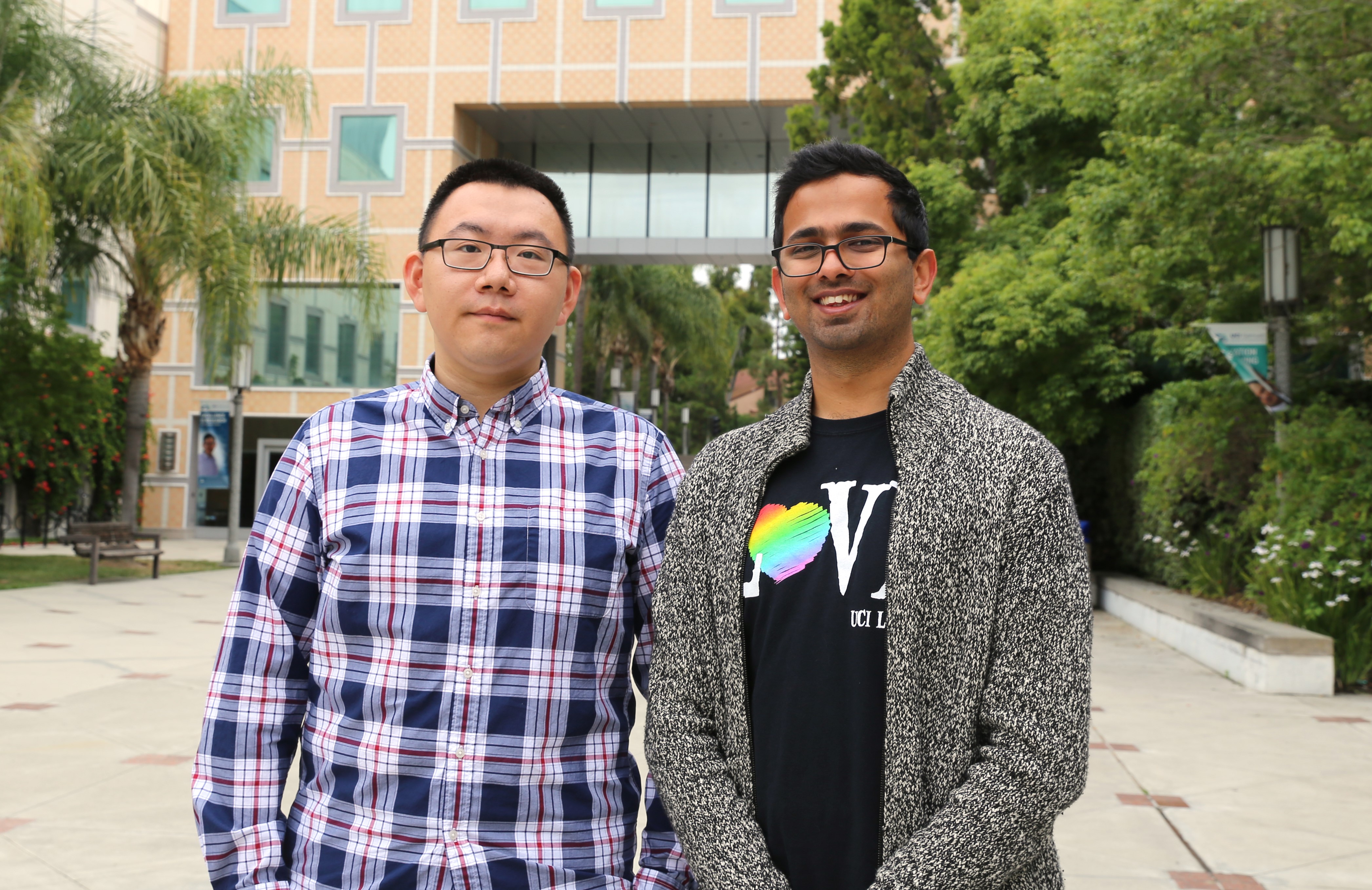
June 27, 2019 - Jaeho Lee, assistant professor of mechanical and aerospace engineering, has good reason to be proud of three of his doctoral students. They all won best paper awards at the 18th IEEE Intersociety Conference on Thermal and Thermomechanical Phenomena in Electronic Systems (ITherm), held last month in Las Vegas, Nevada.
Ziqi Yu and Zongqing Ren won the award in the emerging technologies and fundamentals track at the conference. Their paper, Investigation of Thermal Metamaterials based on Nanoporous Silicon using Ray Tracing and Finite Element Simulations, improves understanding of thermal transport phenomena at the nanoscale. Specifically, Yu and Ren show that asymmetric pore shapes provide lower thermal conductivity than symmetric shapes, and that alternating pore size distribution yields lower thermal conductivity than uniform pore size distribution. These findings have applications in electronics, where nanoporous silicon could be used to enable complex heat flow manipulation and control.
Yu and Ren said they are both honored and excited to have won the award. “It is a great recognition of our research. We are very thankful to our adviser, Professor Jaeho Lee, for his constructive suggestions and helpful guidance throughout this work. We would also like to thank the Samueli School of Engineering and Samsung Electronics for financial support,” they said in a written statement.
Anirudh Krishna’s paper on Dynamic Radiative Thermal Management by Crumpled Graphene won the outstanding paper award in the ITherm system-level thermal management track. Krishna says his research began with a simple question: how do ants stay cool in extreme deserts? The answer is they utilize microscale hair structures on their skin to control optical properties that maximize heat loss. Krishna’s paper focuses on crumpled graphene, which, similar to ant hair, can tune the optical and thermal properties of surfaces and materials to heat them or cool them. This ability to tune materials for temperature could have future applications for humans in space.
Krishna said he is honored by the recognition of his work, adding, “The award is especially valuable because it marks the achievement of a multiyear collaborative effort between [our lab], and SungWoo Nam’s lab at the University of Illinois at Urbana-Champaign. While the research process was itself rewarding, it feels great for the efforts to be recognized by the scientific community as well.”
Krishna also said that he gained valuable insights from attending the conference about the future direction of heat transfer research. “This is especially critical to identify potential opportunities for future research in my currently developing field of nano-to-microscale radiation.”
- Anna Lynn Spitzer
